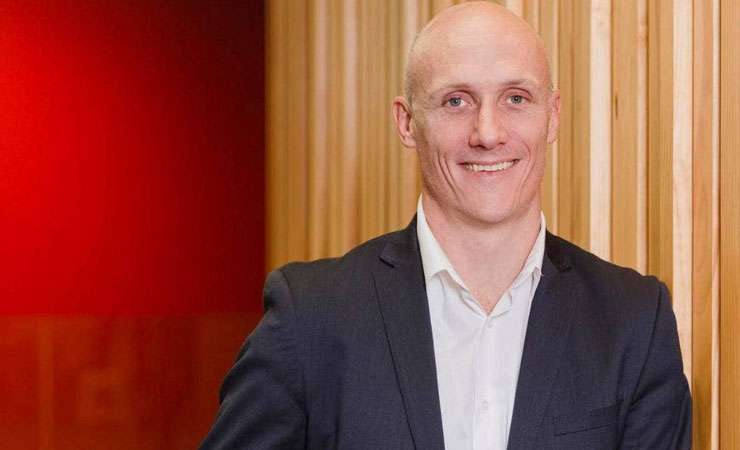Houses may have been cheaper but the average age of first-home buyers went up during the market downturn, with the spike in interest rates and inflation the likely causes of the age increase.
OneRoof analysis of data supplied by credit bureau Centrix shows the average age of first-home buyers taking out a mortgage has risen 2% from a five-year low of 35.7 years in Q4 2021, when house prices were peaking, to 36.7 in Q2 2023.
The rise brought to an end the steady decline in first-home buyer ages since the start of 2018, when the average age of a new mortgage holder was 37.6 years.
The uptick in first-home buyer ages came at a time when interest rates were rising and cost of living pressures worsened, with the Official Cash Rate jumping from a low of 0.25% to 5.5% over roughly the same period and annual inflation rising from 1.5% to a peak of 7.3%, but now sitting at 6%.
Start your property search
The data also shows a sizeable increase in the size of first-home buyer loans. The average first-home buyer mortgage in Q1 2018 was $358,326. This rose to a peak of $591,734 in Q1 2022 but has subsequently dropped to $553,924 for Q2 2023 – up 54% on Q1 2018.
Centrix managing director Keith McLaughlin says the average age of the typical first-home buyer had been gradually falling but from 2022 the average age has been steadily rising, citing a tightening in the economy as the reason.
Long-term, the average age of first-home buyers in New Zealand has been climbing. In 1970 it was just 25. Worsening housing affordability has had a big impact on first-home buyers over the past generation but other factors have also come into play, say experts.
The increase in the number of Kiwis attending university over the last 50 years has pushed up the age at which Kiwis enter the workforce, while student loans have had an impact on the ability to save.
Read more:
- Tony Alexander: Why house price rises are set to rise despite high interest rates
- Is a 30% price discount worth it? The risks of buying an unconsented home
- Crowds cheer for first-home buyers at blockbuster auction
Another complication is the fact that Kiwis are marrying later. According to Stats NZ, the median age at first marriage or civil union in 2021 was 29.6 years for women and 30.7 years for men, compared with 27.5 and 29.3 respectively in 2001. In 1971 the median age at first marriage was 20.8 years for women and 23.0 years for men.
Stats NZ data also indicates that 64.5% of households owned their own homes in 2018, compared to the peak of 73.8% in the 1970s. The 2018 figure was the lowest since 1951.
Data for the age of first-home buyers does differ according to the methodology used. In 2021 CoreLogic and Equifax research noted that the average age of first-home buyers had been between 34 and 35 years from 2016 to 2020.
The research showed that the average first-home buyer age was lower in provincial areas, with the average age of first-home buyers in Manawatu, Masterton, Rangitikei and Timaru standing at 31.
”The figures haven’t been refreshed, but I’d be surprised if it’s changed massively since then,” CoreLogic head of research Nick Goodall told OneRoof this week. “In fact, the recent downturn may have meant some people can access the market a bit sooner than that age.”
Loan market mortgage adviser Lisa Meredith says there are drawbacks to buying later in life, including the ability to secure credit from the banks.

CoreLogic head of research Nick Goodall says lower house prices may have opened up the market to younger buyers. Photo / Supplied
While some of her clients are buying in their 20s, she also gets first-home buyers in their 40s and 50s. The oldest first-home buyer she has had this year was aged 60.
Meredith says lenders pay particular attention to older first-home buyers who have a low deposit, such as 10%. “The banks may say, ‘no, we’ll only do 25-year terms’. It does change from time to time, and we can’t say that a particular bank will always have this policy.”
Once first-home buyers hit their 50s, banks are reluctant to lend for 30 years, says Meredith. Even at 25-year terms, banks want to see a clear exit strategy to ensure that the buyer can pay off the mortgage or sell down before getting too old, she adds.
Sometimes that exit strategy needs to be quite detailed before the bank will approve. “The [client] might say, ‘I will sell and move to the regions’. But there will often be a requirement to have a bit of detail around that.
“Another factor the banks will take into account is occupation. If you've got someone who is 55 and is doing a very manual job, such as a builder, what are the chances of them being so physically fit to be an effective builder at 75? It’s quite different to someone who is maybe a consultant,” she says.
“Another thing to be wary of if you are buying [your first home] in your 40s and 50s, and you're using KiwiSaver, which most people do, is how's that going to look for them in retirement? They clear out the KiwiSaver at 50, and only have 15-20 years to rebuild that. That becomes a bit of a problem.”
- Click here to find properties for sale


















































































